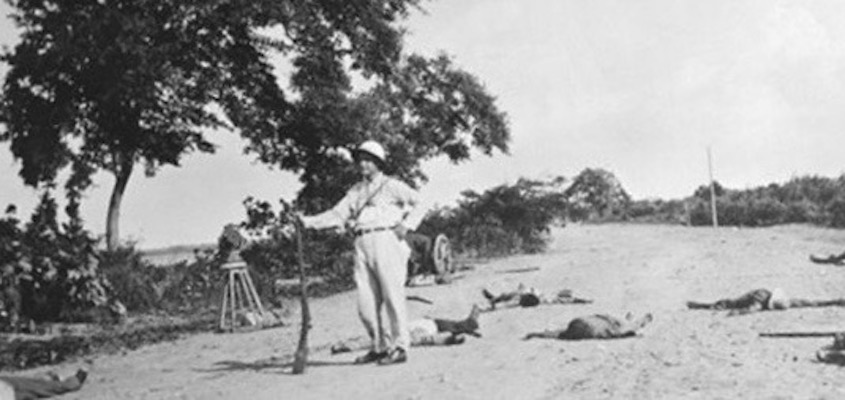by PETER JAMES HUDSON
 Banking On a ‘Shithole’: US-Led Racial Capitalism in Haiti Began Long Before Trump
Banking On a ‘Shithole’: US-Led Racial Capitalism in Haiti Began Long Before Trump
“Haiti was ‘truly a virgin territory ready for the white man’s guiding mind.’”
Donald Trump’s recent description of Haiti, El Salvador, and Africa as “shithole countries [sic]” offered an ugly example of how US foreign policy is often shaped by the dictates of racial capitalism — by an economic system suffused with racial ideology and racist thinking.
The comment recalls an earlier episode of racial capitalism in Haiti which is depicted in my book Bankers and Empire: How Wall Street Colonized the Caribbean. On that occasion, however, the comments came from Wall Street rather than Washington, as part of the National City Bank of New York’s efforts to secure control of Haiti’s finances and banking.
City Bank’s push into Haiti proceeded via investment in the currency-issuing Banque Nationale (Republique d’Haïti, 1914 emission)
The history of Citigroup in Haiti
Founded in 1812, City Bank is the predecessor of the contemporary multinational investment-banking and financial-services corporation Citigroup Inc. By the beginning of the twentieth century, its managers were seeking to transform it from a successful domestic commercial bank into an international financial institution that could compete with the dominant European banking houses.
Haiti was one of the earliest targets for City Bank’s internationalization. This was part of a wider push into Latin America and the Caribbean that found support in the State Department. The US was then pursuing a policy of “dollar diplomacy,” attempting to use financial muscle to bring political stability to the region. City Bank’s initial investments in Haiti came through their participation in the financing of dock and railway projects in 1910. They used these initial investments as a springboard to take over control of Haiti’s economy and financial system, especially through the Banque Nationale d’Haiti, a privately run bank of issue controlled by French and German interests.
“Think of it — niggers speaking French!”
As City Bank’s investments in Haiti and the Banque Nationale increased, so too did their involvement in Haiti’s internal affairs. City Bank managers became critical liaisons for the State Department regarding Haiti’s politics during a period when the country was roiled by internal factionalism and disruptive pressure from French, German, and US political and business interests.
City Bank managers Roger L. Farnham and John H. Allen were critical in this regard. At one point, Allen was called to a meeting at the State Department by William Jennings Bryan and asked to explain Haiti’s history and current political climate. Allen described a country whose citizens were the descendants of formerly-enslaved Africans but whose culture was heavily influence by France. “Dear me, think of it!” Bryan allegedly exclaimed in response, “Niggers speaking French!”
Registers of racial disdain
Bryan’s comments were not unusual. Not only did they reflect the sentiments about Haiti held by most Americans at the time, they also spoke to particular registers of disdain for the country within City Bank itself. Indeed, for Allen, Farnham, and other City Bankers the population of Haiti, like that of much of the Caribbean and Central America, constituted an inferior race whose biological impediments were compounded by the climate-induced degeneracy and torpor of the tropics.
In his dispatches from Haiti, Allen oscillated between describing Haitian people as unbridled savages and innocent but ignorant children. As he once wrote in the City Bank journal The Americas:
“Haiti’s dark millions can be a menace to the United States, but under wise and thoughtful guidance can be developed into a self-respecting and dignified nation that could perhaps help in the solution of one of the greatest problems before us today, the future of the colored race.”
“Farnham described the Haitian masses as ‘nothing but grown-up children.’”
Black Agenda Report for more
